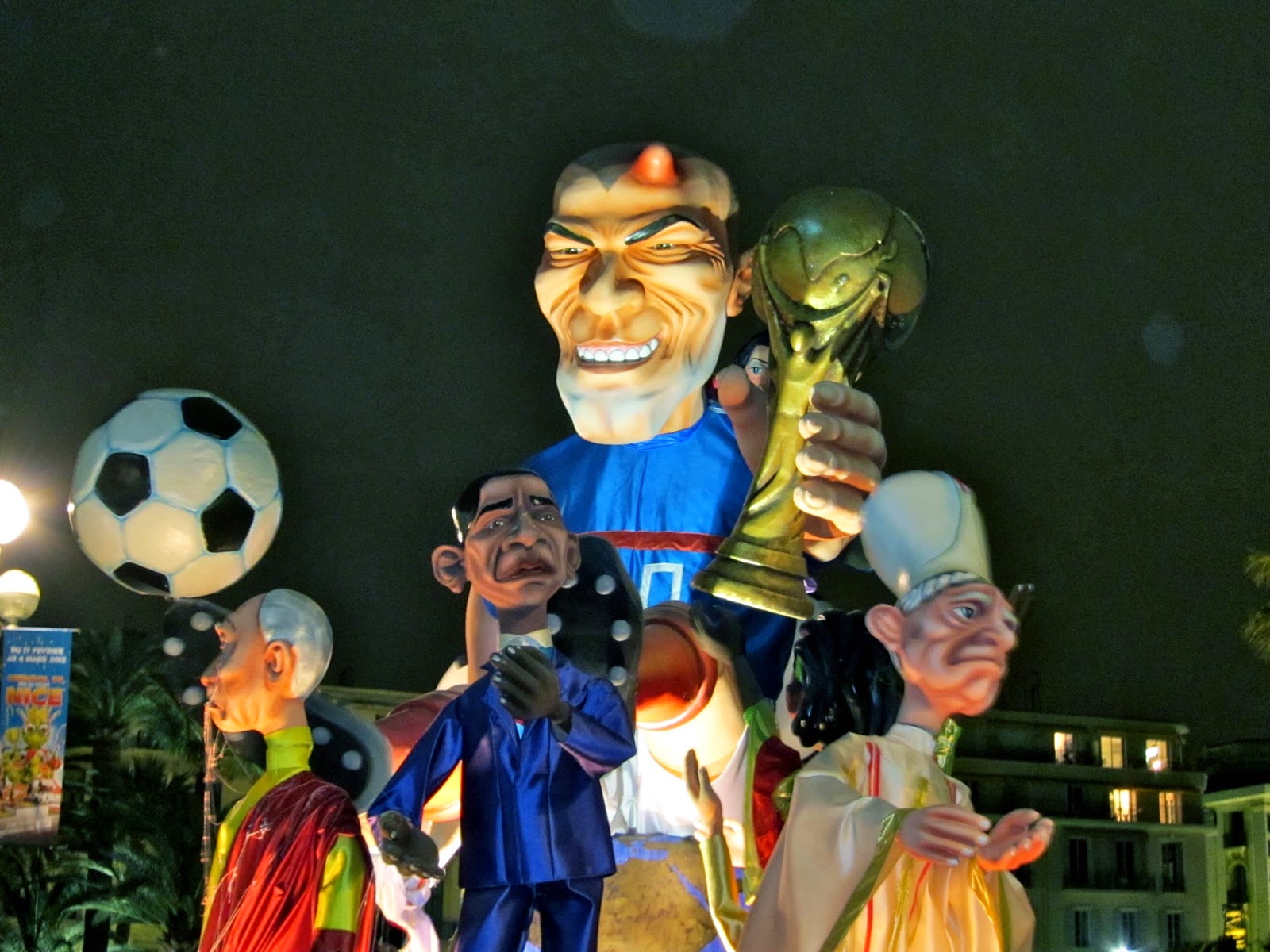The Nice Carnival is one of the world's major carnival events, alongside the Brazilian Carnival and Venetian Carnival. It is held annually in February in Nice on the French Riviera.
The earliest records establish its existence in 1294 when the Count of Provence, Charles Anjou, spent "the joyous days of carnival". This probably makes the Nice Carnival the original carnival celebration.
Today the event attracts over a million visitors to Nice every year. The Carnival spans a two-week period with the final day on Mardi Gras (Fat Tuesday).
Every year, a special theme is chosen, and traditional artists create 18 floats and other figurines in traditional papier mache for colorful parades. The parades take place day and night, while on the Promenade des Anglais, “flower battles” take place.
The 2015 theme will be The King of Music.[1]
This comes directly from wikipedia and I can't refute it.
I have to admit, though, that the Nice Carnival and I got off to a rough start.
That was the first year I was in Nice and it was my birthday and Monsieur was abroad. I knew no one so I decided to take myself to the "Bataille des Fleurs" for a little birthday celebration. I was on the sidelines of the parade, standing next to a big, burly guy who had definitely had a few beers for lunch. He was ready to grab those flowers from the comely girls pitching them to the crowd.
Every time a girl threw a flower in my direction, he reached out in front of me and snatched it. Grinning like a true champion, he then handed it to a plump woman at his side. She all the while was cooing over a limp bundle of blossoms.
I went away from there with not one flower and my feelings about Carnival decidedly ruffled.
Then on the bus the following week, I had my wallet snatched by a pick-pocket, probably there expressly to take advantage of tourists who had their head in a camera viewfinder or were otherwise untangling themselves from "silly string". The wallet thing happened to me twice, both times during Carnival and both times on the 22 bus. You think I'd learn.
 |
| "Gross Tetes" ambling along during an evening parade. |
 |
| A flag twirler or band member probably from Italy |
Besides the fact that I don't like crowds and usually avoid events where people have "carte blanche" to throw stuff ( usually confetti but not always), I have heard that the Carnival has its allures.
First, the Nice Carnival held in late Feb./ early March provides a much needed income for a town who takes its sustenance mainly from hotels, restaurants and small boutiques. For these little businesses to survive, they need that extra hit of cash in winter to tide them over until "the season" begins.
And Nicois parents love to pass the ancient tradition of Carnival on to their young children who go in "disguise". It is fun to see the faces of the little ones as they take in the spectacular floats and people dressed with gigantic heads (Gros Tétes)
 |
| Impressive float going by us with an acrobat suspended behind the woman in front |
 |
| Little Señorita with noise maker in hand. |
 |
| That's Obama and the Pope from a few years back. |
I on the other hand will take myself off to my studio for a little "down" time. Who says I'm "sauvage" ( unsociable)?



